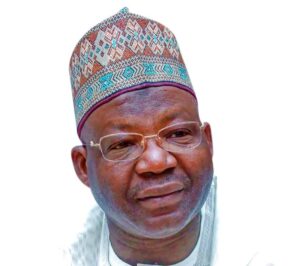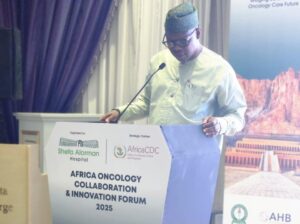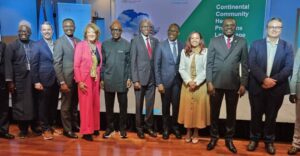
Chidimma Uchegbu -Abuja
Nigeria Government has called for increased global investment in eye health, stressing that preventing blindness and visual impairment is both a moral imperative and an economic necessity.
The Minister of State for Health and Social Welfare, Dr. Iziaq Adekunle Salako, made the call on Wednesday while delivering remarks at a high-level event titled “The Value of Vision: The Case for Investment” held at the United Nations Headquarters in New York, on the margins of the 80th UN General Assembly.
Speaking as co-host on behalf of Nigeria, Dr. Salako noted that millions worldwide, including in Nigeria, suffer from preventable blindness and visual impairment, conditions that diminish quality of life, and slow economic growth.
He emphasized that investment in comprehensive eye health yields significant returns, citing studies showing that every $1 invested in global eye care generates between $28 and $36 in socio-economic benefits.
“Increased opportunities for education, productivity, reduced healthcare costs, and enhanced social inclusion are among the dividends of prioritizing eye care,” he said.
Highlighting Nigeria’s strides, the Minister outlined major policies and programmes that reflect the country’s commitment to reducing avoidable blindness. These include the creation of a National Eye Health Programme with dedicated eye health desks across states and the Federal Capital Territory, as well as the development of the National Eye Health Policy and Strategic Development Plan (2024–2028).
A flagship intervention, the Effective Spectacle Coverage Initiative (ESCIN–Jigi Bola 2.0), has already screened nearly 1.5 million Nigerians and provided more than 1 million people with free reading glasses, 66 percent of whom received their first-ever pair. The initiative, aligned with President Bola Tinubu’s Renewed Hope Agenda, aims to distribute at least 5 million spectacles and conduct 25,000 free cataract surgeries by 2027.
Dr. Salako further revealed that over 2,200 primary health care workers have been trained to deliver eye care services under Jigi Bola 2.0, ensuring integration of primary eye care into Nigeria’s primary healthcare system.
“When we invest in vision health, we not only prevent blindness and enhance human dignity, but also create a pathway to detect broader health problems that burden society,” he stated, urging global leaders and partners to strengthen collaboration and funding for sustainable eye care systems.
The minister thanked the International Agency for the Prevention of Blindness and development partners for supporting Nigeria’s efforts and pledged continued collaboration to make eye care accessible and affordable for all.





Join the Conversation